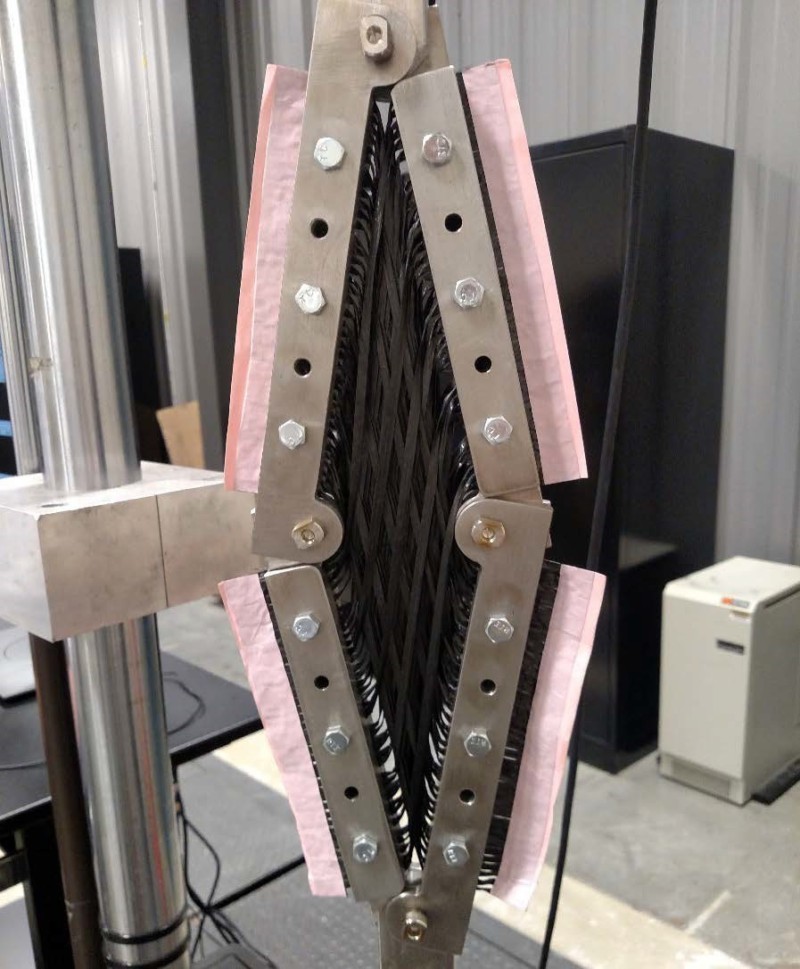Manufacturing USA's The Institute for Advanced Composites Manufacturing Innovation (IACMI), a 160+ member, University of Tennessee, Knoxville and U.S. Department of Energy driven consortium committed to increasing domestic production capacity and manufacturing jobs across the U.S. composites industry, announces the Phase I completion of a project led by DuPont, with project partnership from Fibrtec and Purdue University. The conclusion of Phase I validates the creation of a new carbon fiber composite manufacturing process that exhibits improved fabric formability characteristics compared to traditional woven materials. The implications of the Phase I results are driving Phase II of the project, and can ultimately lead to a decrease in cost for carbon fiber composite structures, making them more amenable for adoption in the automotive and other high volume industries, reduce embodied energy, and can directly lead to a creation of jobs in the industry.

DuPont’s Rapid Fabric Formation technology deploying FibrflexTM at high shear angles.
This new material created through this IACMI project combines Fibrtec’s flexible coated tow, FibrflexTM, with DuPont’s Rapid Fabric Formation (RFF) technology, and a proprietary DuPont polyamide resin, all supported by Purdue University’s extensive modeling and characterization capabilities. The coated tow material is a partially impregnated carbon fiber/polyamide composite tow where the carbon fiber is not fully wetted with the polyamide, yielding a more flexible tow material than one that is fully impregnated. The RFF process is an ultra-fast way of manufacturing fabrics with tows in varying orientations without the need to lift the tow during processing. Experiments, modeling, and simulations, all have shown that this process/materials combination is a potential method for producing lower cost continuous fiber reinforced polymer (CFRP) thermoplastic materials that conform well during molding with outstanding physical properties.
“Fibrtec’s contribution of its globally differentiated thermoplastic composites to this IACMI Phase I joint project with DuPont and Purdue University has helped to deliver breakthrough results on the IACMI goals. Tapping into the innovation of small and medium sized organizations (SMEs), like Fibrtec, and the forging of public/private partnerships through IACMI’s framework is accelerating the insertion of structural composites in the automotive industry. It is a fantastic opportunity for companies like Fibrtec to have access to world-class resources not normally available to them and we look forward to continuing Phase II,” said Robert Davies, Fibrtec’s Chief Executive Officer.
The objective of this project is to reduce the cost of manufacture of carbon fiber reinforced polymer composites by using a near net shape process such as automated fiber placement (AFP) on a relatively inexpensive carbon fiber/polymer tow-preg. The coated tows are easily manipulated, and the resulting pseudo-fabrics are readily draped and conform effortlessly during molding without shear locking. Project partners projected that with this strategy, the process would be able to use the expensive carbon fiber only where it is required, reducing the carbon fiber waste by up to 30 percent, and creating fiber preforms that predictably deform during compression prior to molding. The Phase I project conclusion resulted in better than expected outcomes with embodied energy being reduced by more than 40 percent using this processing scheme.
Read more...

